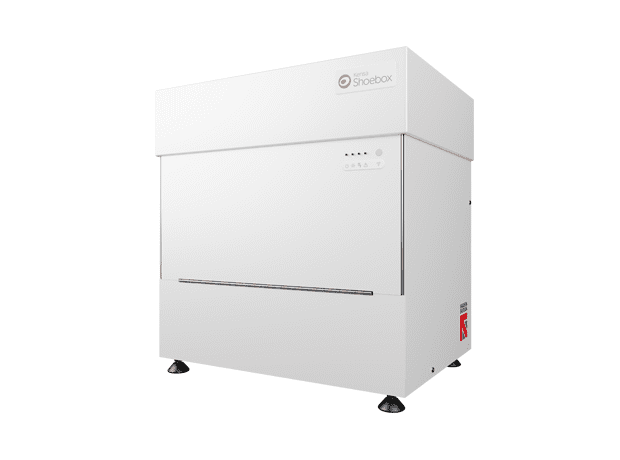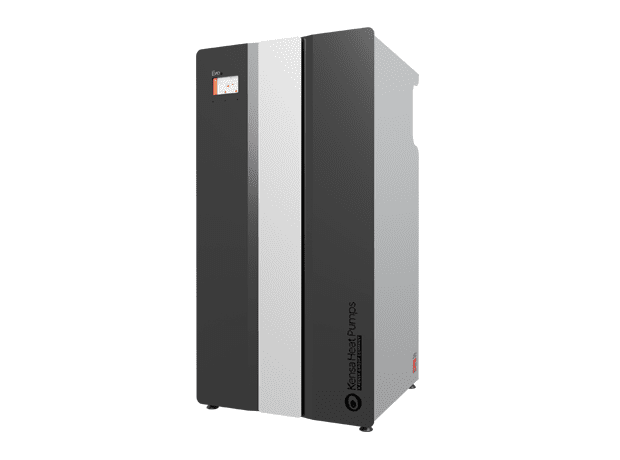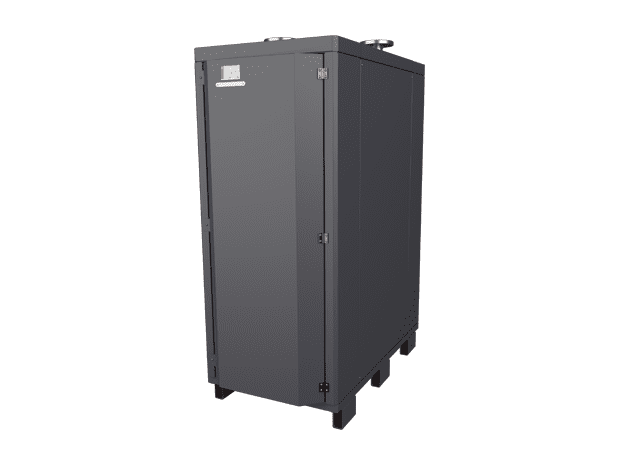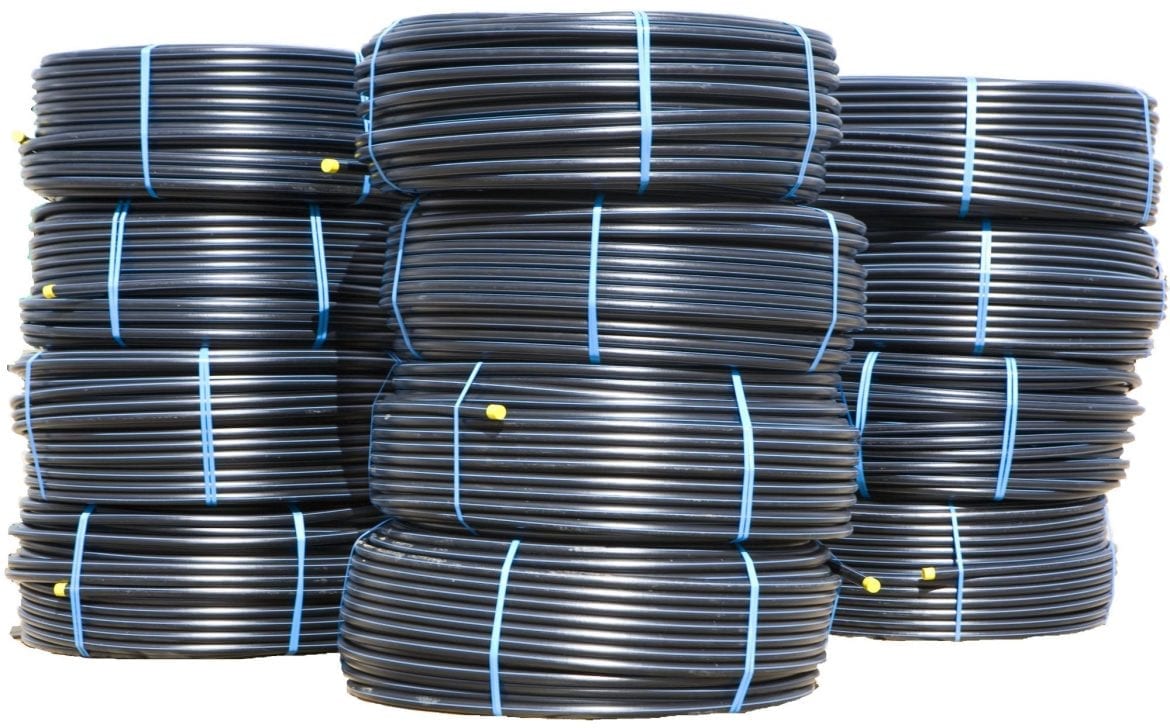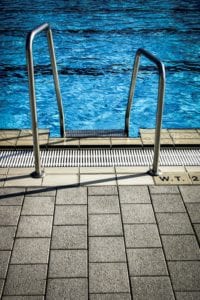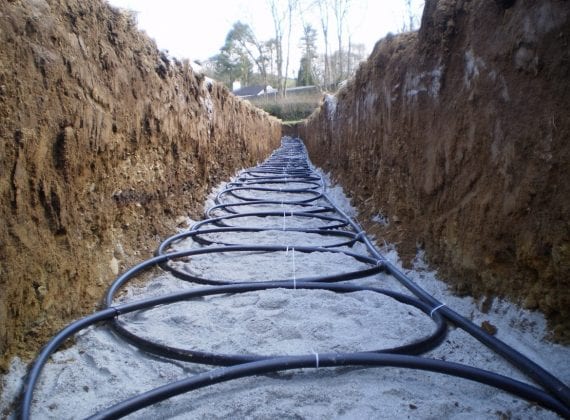Ground Source Heat Pumps for Marine & Leisure
Whether you’re a boat owner in need of marine heating or a homeowner seeking a smart way to heat a swimming pool, a ground source heat pump is the perfect low-carbon heating alternative.
Our extensive marine and leisure experience includes projects such as lifeboats, barges, hot tubs and indoor swimming pools.
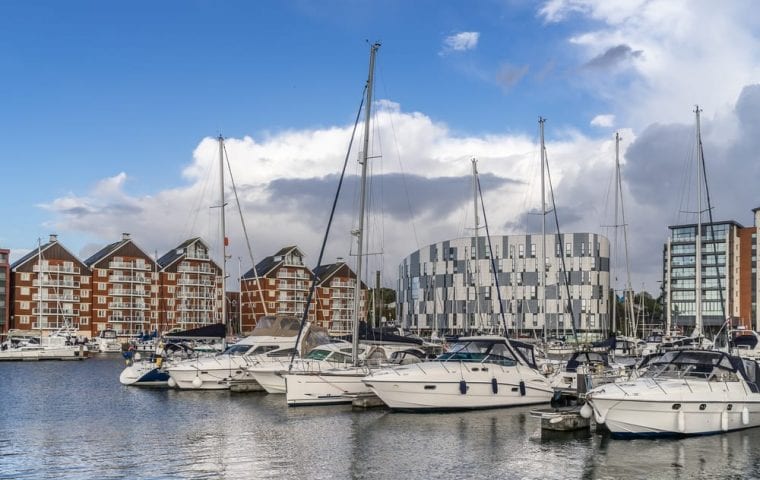
Installing marine heat pumps since 1999
Prior to establishing Kensa Heat Pumps, our founders spent a considerable amount of time working on superyachts. They recognised the value of heat pump technology to provide space heating and cooling on board.
As a result, Kensa Heat Pumps has been providing water-based heating and cooling solutions since 1999 and is a long-term supplier to the RNLI.
Get a heat pump quote
Heat pumps for swimming pools
Ground source heat pump systems can provide hot water for leisure, helping to reduce energy consumption and lower the cost of heating a swimming pool.
Heat pumps are very good at heating swimming pools and hot tubs, but there are several things you need to consider:
Outdoor pools
Outdoor pools are generally only used in the summer so an air source heat pump or solar thermal is the most efficient method of heating. With an outdoor pool, the losses to the atmosphere are difficult to gauge, so its important to seek advice from the designer of the pool. Highly efficient pool covers should also be used.
Indoor pools
Due to their all year round usage, indoor pools are better suited to ground source heat pumps. The constant ground temperature all year round makes ground source heat pumps a more efficient choice.
Pool insulation & heat load
The pool’s heat losses are critical to the size of the ground source heat pump required. The heat losses of the pool depend on how well insulated it is and this should be easy to specify for a new pool. For a well-insulated, new swimming pool, the load of heating the water (excluding any dehumidification loads) can be calculated by using the guide of 1kW per 5 cubic meters of water.
For an existing pool, however, it is more difficult to determine heat losses, and the insulation may also be waterlogged. The heat load should be calculated by a pool designer with these considerations in mind.
Condensation
As well as the swimming pool load the dehumidification load must be also taken into account. This can be via the heat pump or a secondary heating system.
If you have an indoor swimming pool then maintaining the correct humidity of the air in the pool room is essential. without this, water will very soon soak into the floor, walls, roof, and window frames causing corrosion, wood rot, mould and bacteria growth and an unhealthy environment.
To control condensation, a swimming pool dehumidifier is required. There are many things to take into consideration when specifying a swimming pool dehumidifier. The starting point is the surface area of the swimming pool. From this, an estimate of the litres per day of water vapour produced can be determined. As an initial guide with a heat pump, the heating load is halved and then added to the heat pump sizing. The hot water produced by the heat pump is then split between the pool heating and dehumidification plant.
It is important to ensure that the dehumidification equipment selected is sized for the correct temperature of 35-40°C coming from the heat pump and not 82°C which most ‘off the shelf’ units operate at. The dehumidifier fan should also be larger.
Size of the ground arrays
Most indoor pools are used all year round and require heat all year round. A ground source heat pump array that is used to heat a house would usually get a complete rest from May to September when the heating is off.
An array supplying a pool does not get this, so it never gets a chance to recover. It is therefore essential that the ground array is sized for an all year round demand, as a minimum it should be at least double the size as that required for a domestic heating system.
Larger heat exchanger
Pool water usually contains chlorine, which is corrosive to heat exchangers and pipes – standard heat pumps are not rated to handle pool water and must not be used for this purpose. It is, therefore, necessary to put a heat exchanger between the heat pump and pool water.
Heat exchangers are readily available, but most are designed to operate at a temperature difference of about 50°C (30°C pool water and 80°C boiler water). These are no use for a heat pump, which must run at the lowest possible temperature with a 5°C temperature difference. A heat exchanger of this kind is much larger and more expensive than a standard boiler type – but this is not difficult to get right.
A separate unit from the home’s heating system
It is normally recommended that if a ground source heat pump is used to heat a swimming pool, this system is kept completely separate from the home’s heating system. This keeps the systems simple and avoids the possibility of the swimming pool heating draining the energy within the ground for the house heating – leaving the occupants cold. Any issues with the pool heating system will also not impact on the house heating.
Download our guide to heat pumps & swimming pools
Related Content
Ground Source Review: Sabrina 5. In this unique installation, a Kensa 6kW Shoebox is drawing heat from the water in the docks to warm the hold of the ‘Sabrina 5’ barge, which forms part of the National Historic Fleet and is an interactive exhibit at the Gloucester Waterways Museum.
In this unique installation, a Kensa 6kW Shoebox is drawing heat from the water in the docks to warm the hold of the ‘Sabrina 5’ barge, which forms part of the National Historic Fleet and is an interactive exhibit at the Gloucester Waterways Museum. See the case study.
Ground Source Review: Tulak Barge When Nick Clack and Ali Roberts decided to live on a house boat, they wanted one that was as environmentally friendly and sustainable as possible, so they opted for solar panels and Kensa’s Shoebox heat pump.
Heat Pumps and Swimming Pools (AIS) Application Information Sheet Version 2 | Updated: 18/09/2014



